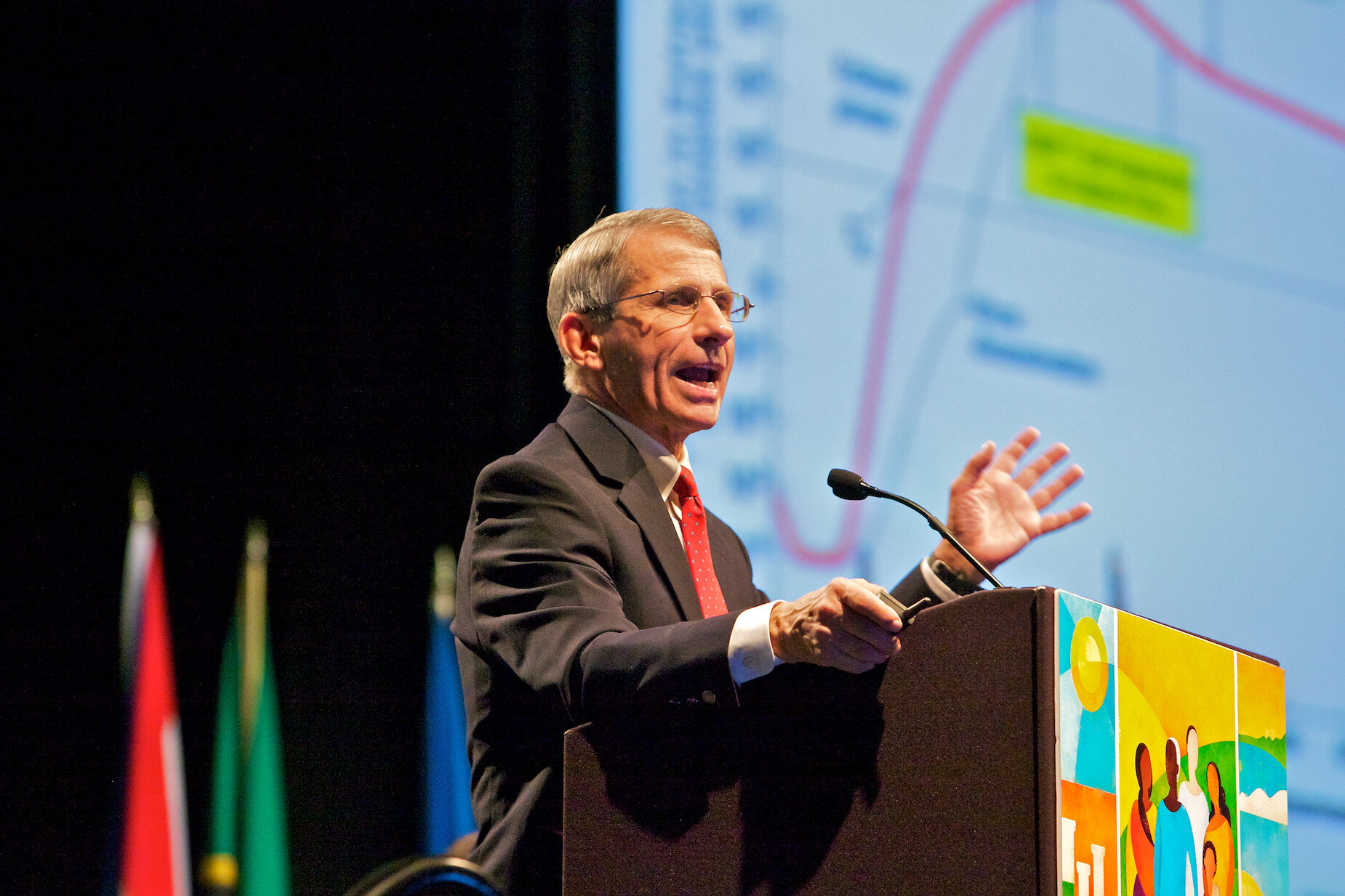The novel coronavirus has spread worldwide to become a global pandemic since the first reported case in China's Wuhan province. As of May 19, there were nearly 5 million confirmed cases around the globe, with more than 300,000 recorded deaths. Almost 2 million people had recovered from the virus at that point.
Countries, and even states and provinces within countries, took different approaches to mitigating the impact of COVID-19. Sweden, for instance, has adopted a herd immunity strategy in which citizens are trusted to keep their distance from others in public and be accountable for their own actions.
In the US, states like Arizona, Arkansas, and Florida were taking steps to re-open their respective economies after shutdown measures. Other states, including California and New York, were still under strict stay-at-home orders.
From a national standpoint, the country's response has been led in part by Dr. Anthony Fauci. Here’s what you need to know about this physician who has recently risen to national prominence:
Education and Medical Background
A native of Brooklyn, New York, Dr. Fauci graduated from Regis High School in Manhattan before enrolling at the College of the Holy Cross and earning a doctor of medicine from Cornell Medical College in 1966. He subsequently completed a medical internship and residency at Cornell Medical Center.
Dr. Fauci joined the National Institutes of Health's National Institute of Allergy and Infectious Diseases (NIAID) in 1968 and worked as a senior investigator at its Laboratory of Clinical Investigation. Over the course of the next decade, he made groundbreaking discoveries in immunoregulation and contributed to treatment efforts for once-fatal illnesses such as lymphomatoid granulomatosis and polyarteritis nodosa.
NIAID Director
After a four-year stint as chief of the Laboratory of Immunoregulation, Dr. Fauci was appointed NIAID director by President Ronald Reagan in 1984. He continues to serve in this capacity and has now advised six presidents on public health matters.
He was instrumental in efforts to understand and develop treatments for HIV/AIDS during the late 1980s and 1990s. He also informed the Bill Clinton, George W. Bush, and Barack Obama administrations on the West Nile virus, anthrax, SARS, and swine flu pandemic.
Despite working under presidents of different political affiliations, Dr. Fauci has remained steadfast in efforts to avoid telling administrations what they want to hear and has instead stuck to scientific facts: "You stay completely apolitical and non-ideological, and you stick to what it is that you do," he told The New Yorker. "I'm a scientist and I'm a physician. And that's it."
Dr. Fauci is among the most trusted and renowned medical researchers in the world. According to a survey conducted by ScienceWatch, he was the world's 13th most-cited scientist between 1983 and 2002. He also holds more than 30 honorary doctorates and has authored or co-authored in excess of 1,100 scientific publications.
HIV Policy and Research Leadership
Dr. Fauci rose to national prominence during the HIV/AIDS pandemic in the United States. The first cases of HIV/AIDS were reported in 1981, at which point Dr. Fauci, working as chief of the NIAID's Laboratory of Immunoregulation, assembled a team of scientists to study the emerging disease.
After being appointed NIAID director, he was integral in convincing Congress to pass a bill to increase funding for AIDS research. He also played a significant role in uncovering how HIV affects the immune system. This, in turn, sparked the development of medications that have allowed patients who are HIV-positive to lead long and meaningful lives.
Although other pandemics have come and gone, Dr. Fauci has continued to work toward eradicating HIV/AIDS worldwide. He helped President George W. Bush launch the President's Emergency Plan for AIDS Relief in 2003. The program is now active in at least 50 countries and has helped save millions of lives.
Peter Staley, a prominent AIDS activist who has known Dr. Fauci for several decades, told the Los Angeles Times that he believes Dr. Fauci continues to serve as NIAID director because of his commitment to finish the work he and others started in the 1980s.
COVID-19 Response
Dr. Fauci began putting together a team to develop a COVID-19 vaccine in collaboration with the Centers for Disease Control in January 2020. Not long after, he became a prominent voice at President Donald Trump's press briefings.
Sticking to his mantra of remaining apolitical and refusing to simply tell presidents what they want to hear, Dr. Fauci has often had to temper the overly optimistic pronouncements of the president. President Trump originally intended to reopen the US by Easter, but Dr. Fauci convinced him to hold off on those plans.
Beyond speaking at White House press briefings, Dr. Fauci has helped educate the public, specifically young people, through a variety of media platforms. In March, he conducted a Q&A with Golden State Warriors player Steph Curry on Instagram Live. He has also appeared on Desus & Mero and Barstool Sports' Pardon My Take, which have audiences largely composed of millennials and Gen Zers.

